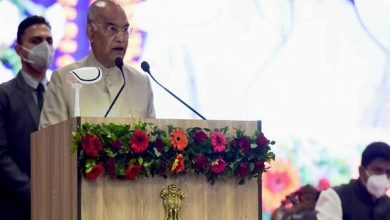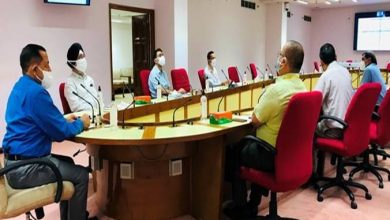Dharmendra Pradhan hands over 100th Letter of Intent under SATAT scheme
New Delhi: Minister of Petroleum and Natural Gas & Skill development and Entrepreneurship Shri Dharmendra Pradhan today handed over the 100th Letter of Intent (LOI) to the Compressed Bio-Gas(CBG) Entrepreneur (producer) under the SATAT scheme. SATAT is an initiative aimed at providing a Sustainable Alternative Towards Affordable Transportation as a developmental effort that would benefit both vehicle-users as well as farmers and entrepreneurs.
Speaking on the occasion, Shri Pradhan hailed the occasion as a breakthrough in realizing the vision of a clean and green India as envisaged by the Government of India. He also reiterated that spreading the gas grid fed by CBG from thousands of such plants across the country would significantly reduce India’s import burden and provide an economical and environment-friendly alternative to conventional petroleum fuels. Shri Pradhan said that it is a waste to wealth venture. He said that the scheme is lucrative for the prospective entrepreneurs, as it provides guaranteed rate of return, assured take-off by Oil marketing companies, there is availability of abundant raw material, and with no condition of any technology. The Minister said that the banks are ready to provide support to such projects due to their good viability. The Government is in talks with the UN environment Fund and Japanese Government for providing soft loans for such projects. The Minister said that CGD system will be available in 400 districts, providing ready market for the Compressed Bio-gas. Lauding the efforts of PSUs involved in the project, he said that within 5 months of its launch, over 100 LOIs have been issued. He expressed the hope that within a short period, thousands of such plants will be operational in the country, providing employment, reducing import dependence, helping in garbage management, and also enhancing the income of farmers.
SATAT was launched with a four-pronged agenda of utilising more than 62 million metric tonnes of waste generated every year in India, cutting down import dependence, supplementing job creation in the country and reducing vehicular emissions and pollution from burning of agricultural / organic waste.
Bio-gas is produced naturally through a process of anaerobic decomposition from waste / bio-mass sources like agriculture residue, cattle dung, sugarcane press mud, municipal solid waste, sewage treatment plant waste, etc. After purification, it is compressed and called CBG, which has pure methane content of over 90%.
Compressed Bio-Gas is exactly similar to the commercially available natural gas in its composition and energy potential. CBG can be used as an alternative, renewable automotive fuel. Given the abundance of biomass in the country, CBG has the potential to replace CNG in automotive, industrial and commercial uses in the coming years.
There are multiple benefits from converting agricultural residue, cattle dung and municipal solid waste into CBG on a commercial scale:
- Responsible waste management, reduction in carbon emissions and pollution
- Additional revenue source for farmers
- Boost to entrepreneurship, rural economy and employment
- Support to national commitments in achieving climate change goals
- Reduction in import of natural gas and crude oil
- Buffer against crude oil/gas price fluctuations
Compressed Bio-Gas plants are proposed to be set up mainly through independent entrepreneurs. CBG produced at these plants will be transported through cascades of cylinders to the fuel station networks of OMCs for marketing as a green transport fuel alternative.


